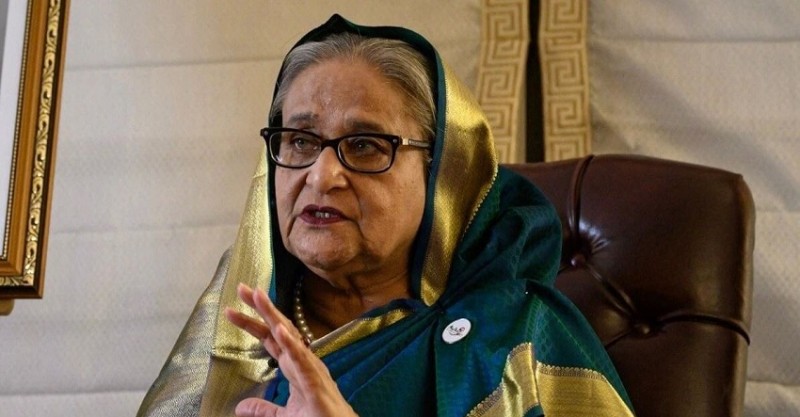
Four weeks after former Bangladeshi Prime Minister Sheikh Hasina fled the country by helicopter amid a student-led uprising, her presence in India has created a diplomatic dilemma for her host country.
Hasina’s rule ended last month when protesters stormed her palace in Dhaka, marking the collapse of her 15-year tenure marred by allegations of human rights abuses and suppression of opposition voices.
The students who led the revolution are now calling for Hasina’s return to Bangladesh to face charges related to the deaths of protesters during the unrest. However, sending the 76-year-old back could jeopardize India’s relationships with other South Asian nations, where it is competing with China for influence.
“India is unlikely to extradite her,” said Thomas Kean from the International Crisis Group. “Such a move would send a negative message to other regional leaders, suggesting that India might not offer protection when needed.”
India has already faced setbacks in the region, including the recent loss of its preferred candidate in the Maldives, which shifted the country closer to Beijing. Losing Hasina, once India’s closest ally in South Asia, further complicates India’s position.
Hasina’s ousting has also fueled resentment among Bangladeshis who suffered under her regime, leading to strained relations with India. The Indian government, led by Prime Minister Narendra Modi, has voiced support for the new Bangladeshi administration headed by Nobel Peace Prize laureate Muhammad Yunus. Modi has also urged Yunus’s government to ensure the safety of Bangladesh’s Hindu minority.
While Hasina’s Awami League was seen as more protective of Hindus compared to the opposition Bangladesh Nationalist Party (BNP), there have been reports of attacks on Hindu temples and individuals following Hasina’s departure. These incidents, often highlighted by pro-government Indian news sources, have sparked protests from Hindu activist groups.
Fakhrul Islam Alamgir, a BNP leader, criticized India for its support of Hasina and its struggle to adjust to the new political landscape in Bangladesh. He emphasized that while Bangladeshis desire a good relationship with India, it should not come at the expense of their own interests.
Amid this atmosphere of distrust, some Bangladeshis even blamed India for deaths caused by severe floods in August. Although the interim Bangladeshi government has not officially requested Hasina’s extradition, it has revoked her diplomatic passport, restricting her travel.
Both countries have a bilateral extradition treaty, signed in 2013, which could facilitate Hasina’s return. However, the treaty includes a clause that allows for the refusal of extradition if the crime is deemed politically motivated.
Pinak Ranjan Chakravarty, a former Indian ambassador to Bangladesh, suggested that maintaining a positive relationship with Dhaka is crucial for India and that pushing for Hasina’s return could damage this important bilateral connection.
More to Read:
Bangladesh Considers Extradition Request for Sheikh Hasina Amid Rising Legal Challenges
BNP Leader Calls for Sheikh Hasina's Extradition to Improve Indo-Bangla Relations
Bangladesh Opens Investigation into Enforced Disappearances by Security Forces Under Sheikh Hasina